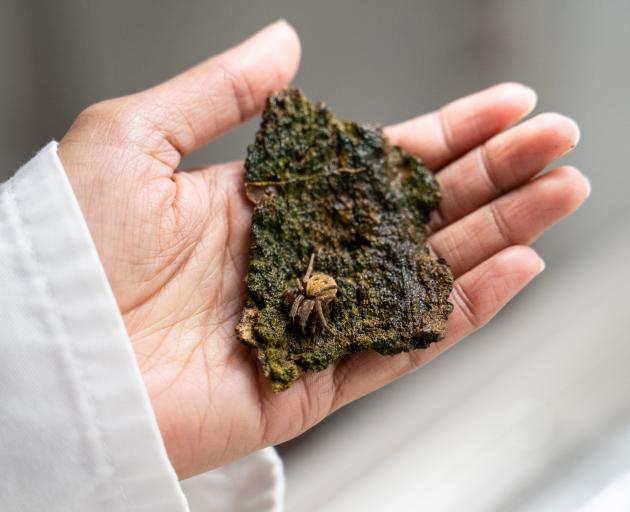Science
Parasitic Worms Transform Spiders into “Zombie” Hosts in New Zealand

A recent study led by PhD student Usha Mendis at Lincoln University has unveiled a disturbing phenomenon involving parasitic worms known as mermithids. These nematodes infect various invertebrates, including spiders, effectively transforming them into “zombies.” Mendis aims to investigate the impact these parasites have on local ecosystems, particularly in New Zealand, where over 90% of spider species are endemic.
The mermithids infiltrate the bodies of spiders, leading to significant physical changes. Infected spiders often exhibit larger limbs, distorted body shapes, and swollen abdomens. Mendis describes this transformation, stating, “They look like zombies.” Unfortunately, the process is fatal for the spiders, as the parasites consume their energy and nutrients, ultimately leading to the host’s death.
Mendis has identified three types of spiders currently affected by these nematodes and is working to clarify the species involved. She emphasizes the ecological importance of spiders, noting, “If something were to happen to them, it would not be good for our biodiversity.” Spiders play a crucial role in the food chain, and their decline could disrupt the balance of local ecosystems.
The life cycle of the mermithids is complex and not fully understood. Researchers know that the nematodes emerge from the spider’s body, but the entry mechanism remains a mystery. Mendis is keen to uncover how these parasites infiltrate their hosts. “They can’t live without a host. They consume the energy and nutrients of the host, and grow inside it,” she explains.
Moist environments are essential for the nematodes to thrive and reproduce. Infected spiders instinctively seek out water, often resulting in their drowning. Mendis is employing water traps to collect these nematodes, which she believes will help in understanding their lifecycle and their relationship with spiders.
Despite mermithids being reported in New Zealand for just over 35 years, much remains unknown about their impact. Mendis urges the public to reconsider their perception of spiders, acknowledging their vital role in ecosystems. “Spiders may look disruptive and creepy, but they’re not the enemy,” she says. “They’ve got their own problems to deal with.”
As Mendis continues her research, the implications of her findings could shape our understanding of biodiversity and the interconnectedness of species within ecosystems. The fate of spiders in New Zealand may depend on uncovering the secrets of these parasitic nematodes, and the urgency of this research underscores the delicate balance of nature.
-

 World1 week ago
World1 week agoPrivate Funeral Held for Dean Field and His Three Children
-

 Top Stories2 weeks ago
Top Stories2 weeks agoFuneral Planned for Field Siblings After Tragic House Fire
-

 Sports3 months ago
Sports3 months agoNetball New Zealand Stands Down Dame Noeline Taurua for Series
-

 Entertainment3 months ago
Entertainment3 months agoTributes Pour In for Lachlan Rofe, Reality Star, Dead at 47
-

 Entertainment2 months ago
Entertainment2 months agoNew ‘Maverick’ Chaser Joins Beat the Chasers Season Finale
-

 Sports3 months ago
Sports3 months agoSilver Ferns Legend Laura Langman Criticizes Team’s Attitude
-

 Sports1 month ago
Sports1 month agoEli Katoa Rushed to Hospital After Sideline Incident During Match
-

 World3 weeks ago
World3 weeks agoInvestigation Underway in Tragic Sanson House Fire Involving Family
-

 Politics2 months ago
Politics2 months agoNetball NZ Calls for Respect Amid Dame Taurua’s Standoff
-

 Top Stories2 weeks ago
Top Stories2 weeks agoShock and Grief Follow Tragic Family Deaths in New Zealand
-

 Entertainment3 months ago
Entertainment3 months agoKhloe Kardashian Embraces Innovative Stem Cell Therapy in Mexico
-

 World4 months ago
World4 months agoPolice Arrest Multiple Individuals During Funeral for Zain Taikato-Fox


















